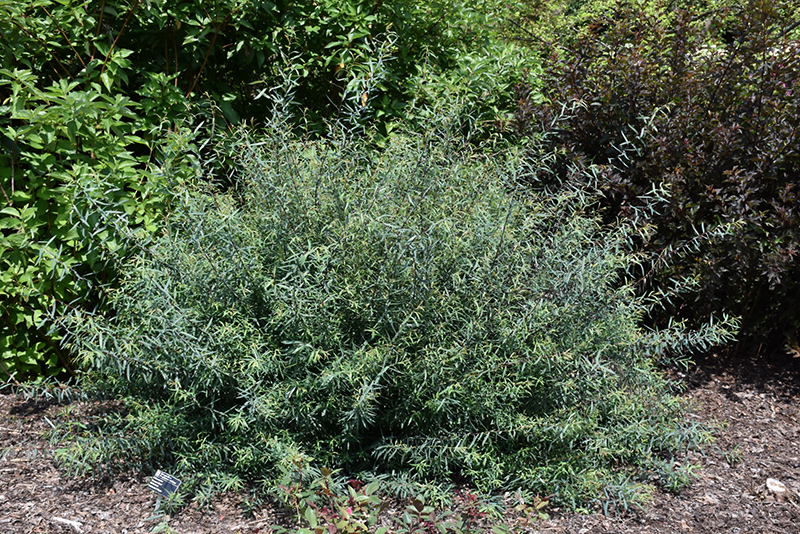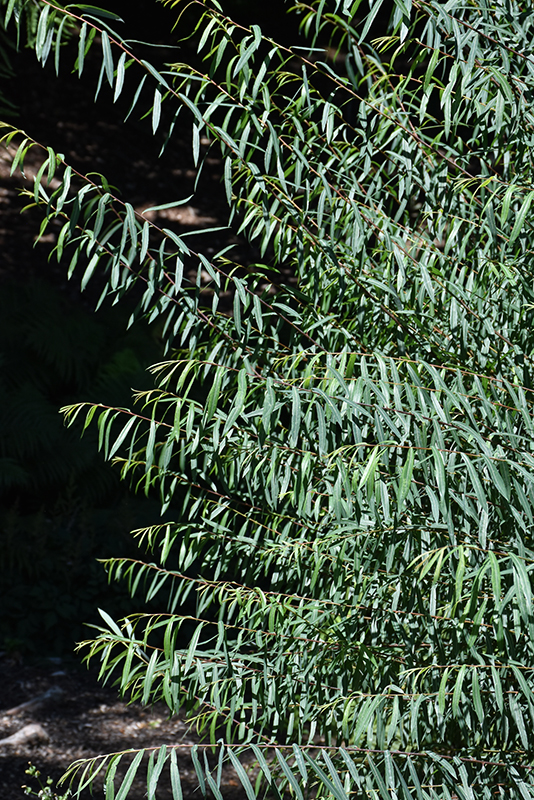Height: 5 feet
Spread: 4 feet
Sunlight:
![]()
Hardiness Zone: 3
Other Names: Purple Willow, Blue Leaf Willow
Description:
A popular medium-sized shrub with fine blue-green foliage and a consistent, rounded habit of growth; quite hardy, takes pruning well; ideal for form and texture in the garden, also makes an artistic hedge, memorable planted in masses
Ornamental Features
Canyon Blue Arctic Willow has bluish-green deciduous foliage on a plant with a round habit of growth. The narrow leaves turn yellow in fall. The smooth bark and deep purple branches add an interesting dimension to the landscape.
Landscape Attributes
Canyon Blue Arctic Willow is a multi-stemmed deciduous shrub with a more or less rounded form. Its relatively fine texture sets it apart from other landscape plants with less refined foliage.
This shrub will require occasional maintenance and upkeep, and is best pruned in late winter once the threat of extreme cold has passed. It has no significant negative characteristics.
Canyon Blue Arctic Willow is recommended for the following landscape applications;
- Mass Planting
- Hedges/Screening
- General Garden Use
Planting & Growing
Canyon Blue Arctic Willow will grow to be about 5 feet tall at maturity, with a spread of 4 feet. It tends to fill out right to the ground and therefore doesn't necessarily require facer plants in front, and is suitable for planting under power lines. It grows at a fast rate, and under ideal conditions can be expected to live for 40 years or more.
This shrub should only be grown in full sunlight. It is an amazingly adaptable plant, tolerating both dry conditions and even some standing water. It is not particular as to soil type or pH. It is highly tolerant of urban pollution and will even thrive in inner city environments. This is a selected variety of a species not originally from North America.


